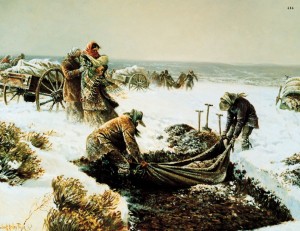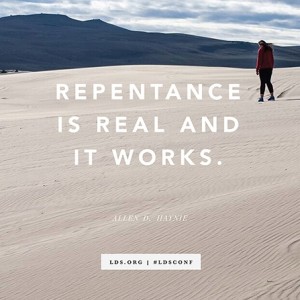It takes a faith-filled heart to realize the Lord’s promise that those with real intent will be shown the truthfulness of the gospel. Real intent to follow what the Lord teaches is at the core of revelation.
My relative Thomas Steed is one of these men with a life full of miracles. I share inspiring excerpts from his own writing.
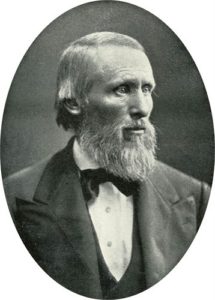
Thomas Steed was like a brother to my direct line grandfather, his cousin, Henry Steed. They each married one of two Reed sisters and worked with and cared for one another for many years. He wrote this life history four years before his death in 1910.
Great Malvern, Worchestershire, England, 1840.
CONVERSION: I was then in my fourteenth (14th) year, and almost a skeptic in regard to the religion of the day. In the Sunday School I had asked my teacher if anybody knew that God lived, and if Jesus was the Redeemer crucified 1800 years ago. He answered: “My boy, you ought not to as ask such a question, you ought to believe; I don’t know and I don’t know who could tell you!” The same question I asked of a number of other individuals who I thought could know, and received the same answer. That caused me to think that there was nothing in religion, if nobody knew anything about these things, and I made up my mind to have nothing to do with it.
One day of that summer of 1840, 1 heard that a meeting was to be held in my father’s house, (called Pale House) by Apostle Woodruff. My sister Rebecca gave an invitation to attend, saying: “One of the second twelve Apostles is going to preach this evening, and added that he had the same authority as the first twelve and that the Church was again organized as it was primitively.” I very much wondered at such statement, as I had never heard any intimation of the existence of twelve Apostles; but I said I would go and hear for myself. Accordingly I went and heard the first principles of the Gospel. A Gospel sermon preached in all simplicity and plainness, for the first time in my life. I was convinced in my mind that the principals he advanced are true, and; his closing words I ever remembered. He said: “My dear friends, if you will receive my testimony and obey the Gospel in sincerity of heart, you shall know that God lives and that Jesus is the Redeemer, and that he has raised up a Prophet in our day and restored the Gospel with the authority to administer in its ordinances; and if you will obey it in sincerity, you shall know as I know that God has spoken from the heavens again and organized His Church upon the earth with all its gifts and blessings.”
PROPHECY AND TONGUES. Those words sank deep into my soul; they have remained with me all my life. My parents were baptized together with my eldest brothers John and William, also my sisters Ann, Elizabeth and Rebecca. I followed the meetings around in the neighborhood and was convinced that the message sent to us was from God, and in the month of November 1840, I was baptized and confirmed by Elder Thomas a missionary sent to us from Lancashire. My two younger brothers, George and Henry, were also baptized later on; and thus, with the exception of my oldest sister Jemima, who was 32 years old and married to Thomas Rowley, our whole family joined the Church of Jesus Christ of Latter-day Saints. We attended the meetings regularly, being happy and joyful. I went on in this way for some time, without extraordinary manifestation; but at the close of one evening meeting, the presiding Elder, Samuel Jones, crossed the room to where I was standing, the meeting being dismissed, and laying his hands upon my head he said: “My boy, if you will pray earnestly to the Lord, you will receive from Him a wonderful manifestation as a testimony of the truth of this divine work.”
Six weeks later I met with the Saints at 10 a.m. at Jonathan Lucy’s home in Colwall; there were two rooms full; the service opened as usual with singing and prayer. When the presiding Elder, my uncle William Steed, was preaching with much power, he stopped all at once saying: “The Spirit has left me and rests upon someone in the room. Will they please get up? If they will we will have one of the greatest manifestations of the power of God that we ever had in this branch.”
The spirit said to me, “It is you, get up.” But I hesitated, as I was a bashful boy. I thought: “What can I say?” And the Elder stood pleading: “Will they please get up?” All at once a power put me on my feet, The Spirit of prophecy rested upon me and I foretold the gathering of the Saints of that Branch with the body of the Church then at Nauvoo, Illinois, and many things that the Lord was about to do in this land of England to gather up the honest in heart, and the judgments that would follow the testimony of the elders. When I thought I could sit down, I could not and suddenly the gift of tongues rested upon me. Then the interpretation was given (by Joseph Williams, said Aunt Sarah). Then I spoke again two or three times and the house was filled with the Spirit and the power of God, and every one present was thrilled with the convincing power of the Holy Spirit and which I could feel through my whole system, like fire shut up in my bones. It was then plainly made known to me that God Lives, that Jesus is the Redeemer, and that Joseph Smith was a prophet of the Most High God. Of the truth of this, a doubt has never crossed my mind from that day to this.
Thomas was led to an opportunity to earn money to emigrate to America in the employ of James Archibald Campbell. The Campbells liked Thomas, but he records,
“It had been discovered, by having the Book of Mormon in my room that I was of the LDS Church. Mr Campbell tried hard to convince meof my “errors” but failing in his own efforts, he secured some anti-Mormon literature for me to read. He also called on the Minister, Rev. Mason, to come to the Lodge and show me I was in error. I had to appear before them in the parlor and to answer questions about our doctrines. He asked me to explain what our people believed. I answered: We believe in the fullness of the Gospel, as taught by Jesus and His Apostles, to the primitive Church, organized with apostles, prophets, teachers, etc., as restored by the prophet Joseph Smith. You mentioned a prophet. Go on and state what you believe about him.
At that moment, the Spirit of the Lord rested upon me, to testify of the truth. Those two learned men seemed as two school boys; all fear left me and I explained the restoration of the Gospel by an Angel who appeared to the Prophet of God. While I was speaking, the minister turned pale and trembled, and when I was through, he said; “Mr. Campbell, send that boy out of the room, we can do nothing with him.” Then in a calm voice the latter said, “Thomas, you can go now.”
Thomas earned money to migrate to America, going through New Orleans, and then by steamboat to Nauvoo, Illinois, where the prophet Joseph Smith met the group at the pier. There George Albert Smith warned them that they had come to the threshing floor. “And after you have been thrashed and pounded, you will have to go through the fanning mill where the chaff will be blown away and the wheat remain.”
This was true, for Nauvoo difficulties were already beginning. Thomas immediately joined the Nauvoo Legion because enemies had threatened to “destroy the city; to take our leaders prisoners and to drive us away. Martial law was declared, provisions became scarce and many suffered from hunger. We were required to stand guard night after night. I could sleep half the time in a barn, my gun for a pillow”.
Thomas recorded, “The day of the last speech of the Prophet Joseph Smith to the Legion, I stood at the foot of the platform. No man ever spoke as he did to my hearing; and never a company of soldiers more determined to live or die with him. After Joseph and Hyrum had given themselves up as prisoners, Governor Ford spoke to the Legion, saying that if we would lay down our arms, he pledged his honor and the faith of the State of Illinois that they would be protected and have a fair trial. Then he dismissed the Legion.
I went to work with Henry at the brickyard. Early in the morning of the 28th of June, 1844, a woman ran to us saying; “Boys, do you know that the Prophet and his brother have been martyred?” I stopped, astounded, immobile against a wall. Impossible! That could not be true! Alas! We soon realized it. All business ceased in Nauvoo; we were all bowed down in sorrow.
My ancestor, Henry Steed’s wife was very ill at the time. Thomas recorded that, “Sarah Layton Steed, Henry’s first wife, died of a broken heart soon after the bodies of the martyrs had been brought home. O thou man of God, whose delight is to instruct us in the glorious principles of Life! Thy Name and fame cannot be slain.”
Thomas moved to Iowa for a short time to earn money to emigrate once more. He worked with his cousins Henry and James and there found his wife Laura Reed. Thomas was one of the rescuers of the Martin and Willie handcart companies and served several missions.
Of the rescue he records, “In the early part of October, 1856, with a number of others, I started on the road to meet the handcarts Companies. It was late in the season and we had a pretty rough time. We met the first Company one day’s drive east of Fort Bridger; the sight I shall never forget; they looked like Indians from afar. They had encountered a severe snowstorm down on the Sweet Water, a most bitter cold to endure; in consequence a great many laid down their bodies to rest in death, worn out with the toils and hardships of the journey and many others were frost bitten very bad. I could not refrain from tears when I beheld the scene that surrounded me.”
“Here I met my niece, Sarah E. Steed, my brother John’s only child; I had sent for her from England. Thanks to the mercy of Providence she was in good health, although a lame girl, aged about 20 years. With them was also Brother John Bailey whom I had known in England, and his daughter, Mary Elizabeth, who later became my second wife. Brother Bailey was so severely frost bitten that his daughter had to carry him. I calculated to return with these to the Valley. I had come for that very purpose; but there was another Company farther back and Brother Wm. Kimball, who was in charge of the teams, wished me to let others take care of my friends and accompany the teamsters who went after the last Company. We wept together when I had to tell them of that decision. My poor friend Bailey died in arriving to salt Lake.”
“We traveled on until we came to the last crossing of the Big Sandy, going East, but could not see nor hear from them. Here we had a very severe snow storm and concluded to send two men down to the Sweet Water to see if any intelligence could be obtained; but the storm was so violent that the two men returned at night to us. Capt. Amussen concluded to fall back unto Green River where about 50 teams were stopping. In the morning Van Cott and C. Spencer started back for the Valley; the rest followed until we were as far as Fort Bridger and here halted for a few days, waiting to see if we could hear from the Company. In four days an express arrived, telling that those people were down at the Sweet Water. We harnessed up and started and met them about ten miles East of the Pacific Springs.
“They were in a very sad condition; a great many badly frozen. We used all the care and attention we could to make them as to make them as comfortable as possible. My only blanket I gave to a sick girl to keep her warm. We made good headway towards the Valley and arrived on the 30th of November, thankful that the Lord had brought us safely through the cold and snow to our families.”
This faithful man served several missions. Shortly before passing on, had a vision of the hereafter that others recorded him as saying:
“I had a glorious vision of the Principles of salvation and how the faithful will stand with the Savior upon the earth in its glorified condition. It was shown me when I was awake, and the same as Job, I know that my Redeemer lives, and I will stand with Him on the earth in the latter days. It was made manifest to me that all the promises made to the faithful will be realized, fully realized. It was so grand and beautiful! Indeed, it is such a blessing to me to think of it! My soul is filled with joy and consolation! I could not help but shout: Glory to God! Yes, glory to God!”
Thomas Steed, 1826 – 1910, Church Historical Department: RES, M270, Z9C #10
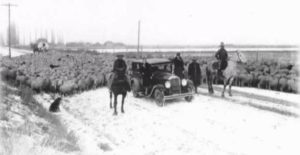
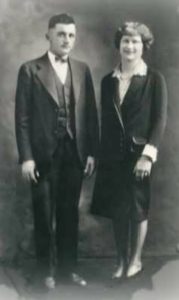
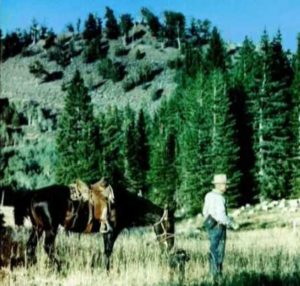
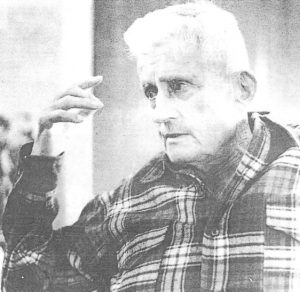
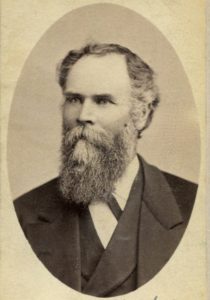
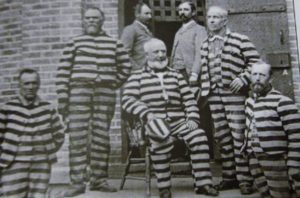

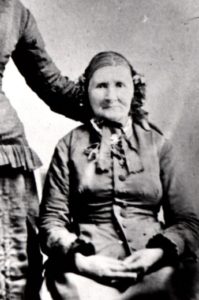
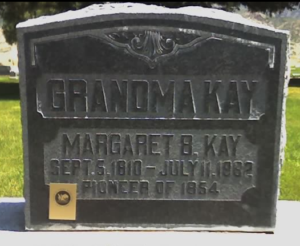
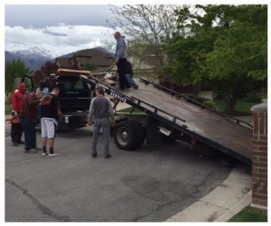

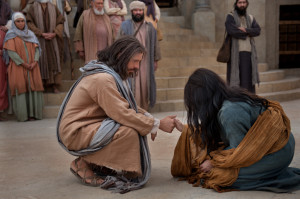


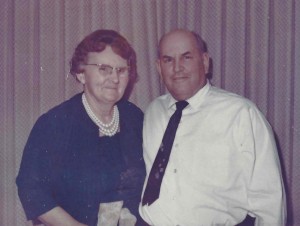
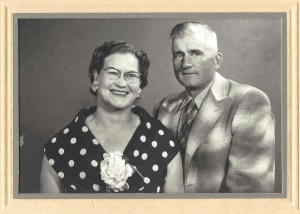 My Grandmother Chournos loved music. She was my primary pianist when I was a child. She was on her deathbed and too weak to turn her head to see who had come. My mother asked if there was something we could sing for her and she asked my mother, daughter, sons and I to sing, “the hymn about the Garden of Eden.” We looked at each other, initially not knowing which song she meant. Then it hit me, “She wants us to sing, ‘Now Let Us Rejoice’ “.
My Grandmother Chournos loved music. She was my primary pianist when I was a child. She was on her deathbed and too weak to turn her head to see who had come. My mother asked if there was something we could sing for her and she asked my mother, daughter, sons and I to sing, “the hymn about the Garden of Eden.” We looked at each other, initially not knowing which song she meant. Then it hit me, “She wants us to sing, ‘Now Let Us Rejoice’ “.